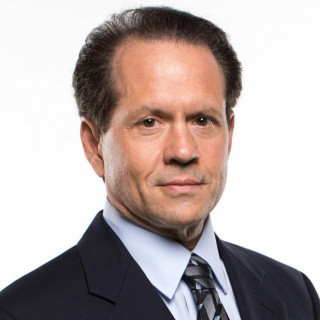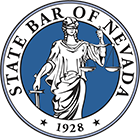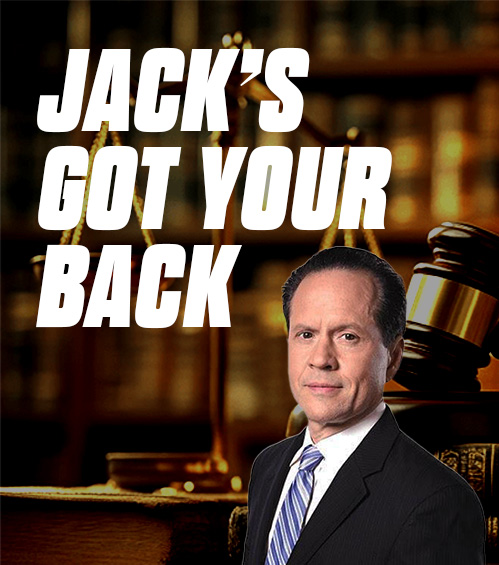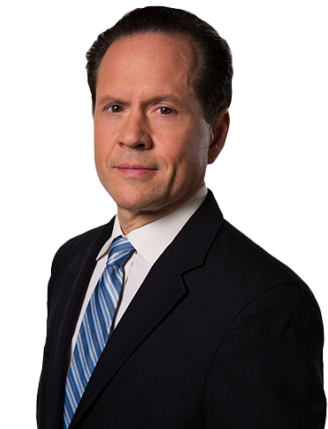A slip and fall at Whole Foods can happen in seconds, but the impact on your life can last months or years. If you’ve been injured due to a dangerous condition at a Las Vegas Whole Foods – whether the Town Square or Summerlin location – you’re dealing with more than just physical pain. You’re facing medical bills, missed work, and the stress of what comes next.
In Nevada, Whole Foods has a legal duty to keep their premises reasonably safe for customers. This duty is called premises liability, and under Nevada law (NRS 41.130), when property owners fail to maintain safe conditions, they can be held responsible for your injuries.
What makes Whole Foods unique is the combination of traditional grocery hazards with specialty department dangers – juice bars creating sticky floors, hot food bars generating grease and steam, bulk bins spilling products, and prepared foods stations with constant traffic. Since Amazon’s acquisition in 2017, Whole Foods operates with deep corporate resources but also complex liability structures involving both Amazon and Whole Foods Market entities.
Fighting Amazon-backed legal teams is daunting. They have virtually unlimited resources to defend claims and sophisticated strategies to minimize payouts. With 40 years of experience as a personal injury attorney, Jack Bernstein knows how to navigate corporate complexity and build cases that hold these defendants accountable.
Jack’s got your back!
Why Hire Jack Bernstein Injury Lawyers?

Jack G. Bernstein, Esq. has been protecting the rights of injured victims and their families for over 40 Years.




What Our Clients Say
I had a fantastic experience with Jack Bernstein injury attorney firm! The team was incredibly smart and supportive, guiding me through every step of my case. Their expertise and dedication made a significant difference in the outcome of my situation. I truly appreciate their assistance and highly recommend their services to anyone in need of a top-notch injury attorney.
– Ashley Sonson
What Should I Do Immediately After a Whole Foods Accident?
What you do in the first hour after your Whole Foods accident can make or break your case. Evidence in these upscale markets with their “team member” culture and constant floor maintenance can disappear quickly.
If you can only do three things right now:
- Take photos of where you fell and what caused it
- Get medical attention within 24 hours
- Don’t give any recorded statements to insurance
Here are the complete steps when you’re able:
Document Everything Before It’s Gone
Use your phone to take extensive photos and video before team members clean the area. Document the specific spot where you fell – whether it’s kombucha leaking from the refrigerated probiotic section, olive oil from the bulk dispensers, juice from the fresh-squeezed juice bar, or water from the floral department’s constant misting.
Whole Foods specific timing: Their “10-foot rule” requires team members to acknowledge customers within 10 feet, meaning staff are constantly moving through the store. This creates more witnesses but also faster cleanup of hazards. Peak prepared foods rush (11:30am-1:30pm) means the hot bar and salad bar areas see maximum traffic with minimal monitoring. The evening Prime member discount hour (typically after 4pm on unsold prepared foods) creates congestion at food stations.
Department-specific evidence: If you fell near the juice bar, note which juice was being made – cold-pressed creates different residue than smoothies. At the bulk bins, photograph which product spilled – oils from nuts create lasting slicks, while grains create rolling hazards. Near prepared foods, document whether steam condensation from hot foods created wet floors.
Also preserve physical evidence: Seal your clothing and shoes in bags. Whole Foods’ organic and specialty products – truffle oil, fresh-pressed juices, artisanal sauces – leave distinctive residue that proves what caused your fall. Keep your receipt showing Prime membership status and exact timestamp.
Get Witness Information
If anyone saw your accident – other shoppers, team members in their branded aprons, or third-party vendors (many specialty departments are operated by outside companies) – get their names and phone numbers immediately. Whole Foods customers often shop on predictable schedules (Sunday morning regulars, lunch rush professionals), making them easier to locate than random shoppers.
File an Incident Report
Insist on filing an official report with a Team Leader or Store Team Leader (Whole Foods’ terminology for management), not just a team member. Amazon’s acquisition brought more standardized procedures, but enforcement varies by location.
DO say:
- “I slipped on liquid near the juice bar at 12:15pm”
- “I fell on oil that had spread from the bulk bins section”
- “I tripped over boxes left in the aisle during Prime delivery staging”
- “I am injured and require medical attention”
DON’T say:
- “I was probably walking too fast”
- “I should have seen it”
- “I’m okay, just embarrassed”
Important: Get a copy of the incident report or photograph it. Some locations claim Amazon’s data protection policies prevent immediate copies – this is false for incident reports. Insist on documentation before leaving.
Seek Medical Attention Immediately
Go to urgent care or the ER within 24 hours. Whole Foods’ polished concrete floors (chosen for sustainability and easy cleaning) are unforgiving when you fall. What seems like minor soreness often develops into herniated discs, torn ligaments, or concussion symptoms that appear days later.
Do I Have a Valid Whole Foods Case?
Even if you’re a Prime member who shops there weekly, that doesn’t make you responsible for hazards their team failed to address. Under Nevada law, Whole Foods owes customers a heightened duty of care because you’re invited onto the property for their economic benefit.
What Proves Whole Foods Was Negligent
To have a valid case under Nevada premises liability law, we must show:
A dangerous condition existed: Spills, leaks, cluttered aisles, or other hazards were present.
Whole Foods knew or should have known: The hazard existed long enough that team members should have discovered it during their regular floor walks.
They failed to fix it: No cleanup occurred, no warning signs were posted, and the hazard remained.
This caused your injury: You were hurt as a direct result of their negligence.
Common Whole Foods Hazards That Create Strong Cases
Prepared foods stations generate Whole Foods’ most frequent hazards. The hot bar creates steam condensation that spreads across floors. Customers loading containers spill soups, sauces, and oils. The $15.99/pound price point means customers pile containers high, increasing spill risk. Between 11:30am-1:30pm, these stations see 40% of daily traffic with minimal team member monitoring because everyone’s serving customers.
Juice and coffee bars create unique slip zones. Unlike traditional grocery stores, Whole Foods operates full juice bars making fresh smoothies and cold-pressed juices. Spills from these stations contain fruit sugars and vegetable pulp that create sticky, slippery surfaces. The coffee bar’s constant grinding and brewing generates water from steam and overflow. Customers carrying $8 smoothies and $6 lattes while shopping increase spill frequency.
Bulk bin aisles present hazards rarely found elsewhere. Customers self-serve from gravity bins containing oils, nuts, grains, and liquids. The scooping motion naturally creates spillage. Oils from almonds and cashews create invisible slicks. Grains roll underfoot like ball bearings. Liquid dispensers for maple syrup and honey leak constantly. Unlike pre-packaged items, bulk spills happen silently without breaking containers to alert staff.
Refrigerated probiotic sections generate more condensation than standard dairy cases. These specialty items require precise temperature control, causing units to cycle frequently and drop more water. Kombucha bottles, with their active fermentation, sometimes leak or explode, creating hazards team members might not immediately recognize as different from water.
Amazon Prime staging areas have created new hazards since 2017. Online orders get staged in customer areas during busy periods. Team members rushing to fill Prime orders leave carts, boxes, and products in aisles. The pressure to meet two-hour delivery windows means safety becomes secondary to speed.
The Specialty Department Challenge
Whole Foods operates differently than conventional groceries:
Third-party vendors run many specialty departments. The juice bar might be operated by a local company, the coffee by a regional roaster. This creates confusion about who’s responsible for spills and maintenance in these areas.
Team member rotation means the person working produce this morning might be at checkout this afternoon. This flexible staffing model, while customer-friendly, can lead to departments being left unmonitored during transitions.
“Green mission” cleaning products used for sustainability may be less effective at eliminating slippery residues than traditional chemicals. Eco-friendly floor cleaners sometimes leave surfaces slick longer than conventional products.
Amazon’s Corporate Structure Impact
Since Amazon acquired Whole Foods in 2017 for $13.7 billion, liability structures have become more complex:
Dual corporate entities: Is Amazon liable as parent company? Is Whole Foods Market liable as operator? Often both share responsibility, meaning multiple insurance policies and deeper pockets for compensation.
Data-driven operations: Amazon’s technology tracks everything – foot traffic patterns, sales per square foot, staffing levels. This data can prove the company knew about dangerous conditions or understaffing that contributed to hazards.
Prime integration effects: Prime member discounts and delivery services changed traffic patterns. The 4pm-7pm Prime discount window creates predictable congestion. Prime delivery deadlines pressure team members to prioritize speed over safety.
Vegas-Specific Whole Foods Challenges
Town Square location (6689 S Las Vegas Blvd): Tourist shoppers unfamiliar with store layout create different hazards. Visitors buying specialty items for hotel rooms increase certain spill types. Proximity to the Strip means some customers may be intoxicated.
Summerlin location (100 S Rampart Blvd): Affluent demographic includes more elderly shoppers with mobility limitations. Morning yoga crowd creates rushes at juice bars. Lunch rush from nearby offices overwhelms prepared foods.
No overnight operations: Unlike some Vegas groceries, Whole Foods closes (typically 10pm), meaning all cleaning happens during business hours. Deep cleaning during slower periods (2pm-4pm) creates wet floor hazards when stores can’t section off areas.
Heat effects on specialty products: Las Vegas heat affects Whole Foods’ specialty items differently. Chocolate displays near entrances melt. Refrigeration works harder, creating more condensation. Produce requires more frequent misting in dry desert air.
What If I Was Partially at Fault?
Nevada follows a modified comparative negligence rule. You can still recover compensation as long as you weren’t more than 50% at fault. Whole Foods will argue you should have navigated carefully in obviously busy areas like prepared foods stations.
Example: If your damages total $100,000 and you’re found 30% at fault for not noticing a yellow “Wet Floor” sign partially blocked by a Prime delivery cart, you’d still recover $70,000.
When Cases Are Harder to Win
Be honest about factors that can weaken your claim:
- You were sampling products and walking while eating
- You were reading your phone while in the bulk bins area
- You ignored team member warnings about wet floors
- The spill had just occurred seconds before
- You were wearing inappropriate footwear for shopping
Even with challenges, cases can succeed. Being a regular shopper who knows normal conditions helps establish when hazards are unusual. Jack’s experience helps evaluate which obstacles can be overcome.
When You Need Legal Help Immediately
Call an attorney right away if:
- You suffered serious injuries requiring emergency treatment
- Management mentions this is a “known issue” or “happens frequently”
- Team members admit understaffing contributed to the hazard
- The accident involved equipment failure (leaking cases, broken flooring)
- Amazon or Whole Foods corporate contacts you within hours
Critical deadline: Nevada law gives you two years to file suit, but evidence vanishes quickly. With Amazon’s data capabilities, digital records could be archived or deleted based on corporate retention policies. Act fast.
Protecting Yourself From Insurance Company Tactics
After your accident, you’ll face insurance representatives from potentially both Whole Foods and Amazon. They have unlimited resources and sophisticated strategies developed from thousands of cases.
With 40 years of experience as a personal injury attorney, Jack knows their playbook and builds cases to defeat their tactics.
The Recorded Statement Trap
Within 24-48 hours, an adjuster will call with concern about your wellbeing. They’ll reference Whole Foods’ community values and customer care. This is a tactic. Never give a recorded statement without an attorney.
Their questions are designed to minimize claims:
- “Do you shop there regularly?” (establishing you knew the layout)
- “Were you looking at products on the shelves?” (proving distraction)
- “Was it during a busy time?” (shifting blame to accepted congestion)
- “Did you see any team members nearby?” (implying you should have asked for help)
Amazon-Era Insurance Tactics
The automation defense: They’ll claim electronic monitoring systems would have detected hazards if they existed long enough to create liability. This ignores that sensors can’t detect clear liquids or thin oil films.
Comparative pricing argument: They argue shopping at premium-priced Whole Foods means accepting a different environment than conventional stores, including crowded specialty stations and unique layouts.
Third-party vendor deflection: For accidents near operated departments (juice bar, coffee station), they’ll claim independent contractors bear sole responsibility, attempting to limit Whole Foods’ liability.
The Best Response
“I am focusing on my medical treatment and recovery. My attorney will be in contact with you to handle all aspects of my claim.”
This statement, refined through Jack’s decades of practice, immediately signals you understand your rights.
Understanding Your Whole Foods Injuries and Compensation
Whole Foods injuries are often severe due to hard flooring, confined specialty department spaces, and falls involving displays or equipment.
Why Whole Foods Injuries Are Serious
Polished concrete floors: Chosen for durability and sustainability, these surfaces provide zero cushioning. The same fall that causes bruising elsewhere can cause fractures at Whole Foods.
Specialty department equipment: Falls near juice bars involve industrial juicers. Hot food stations have steam tables and heating elements. Bulk bins have metal scoops and heavy dispensers. These create additional impact points and injury mechanisms.
Product-specific injuries: Broken kombucha bottles create lacerations. Hot soup spills cause burns. Essential oil spills can cause allergic reactions or chemical irritation beyond simple slip injuries.
Shopping basket design: Whole Foods’ smaller baskets (encouraging frequent visits over huge stockups) are often carried rather than rolled, meaning customers can’t catch themselves when falling.
Types of Compensation Available
Economic damages cover measurable losses:
- Medical expenses (current and future)
- Lost wages and earning capacity
- Physical therapy and rehabilitation
- Prescription medications and equipment
- Transportation to appointments
- Household services you can’t perform
Non-economic damages compensate for:
- Physical pain and suffering
- Emotional distress and anxiety
- Loss of enjoyment of life
- Permanent disability or scarring
- Impact on relationships
Why You Shouldn’t Accept Quick Settlements
Amazon-backed insurance may offer quick settlements hoping their corporate reputation makes you accept less. These offers typically ignore long-term impacts and future care needs.
Warning signs of inadequate offers:
- Pressure to decide within 24-48 hours
- Emphasis on Whole Foods’ “values-based” resolution
- No accounting for future complications
- Offers contingent on broad confidentiality agreements
Never settle before reaching “maximum medical improvement” – when doctors can assess permanent impacts.
Why Choose Jack Bernstein for Your Whole Foods Case
Whole Foods cases require understanding specialty grocery operations, Amazon’s corporate influence, and sophisticated defense strategies. Generic personal injury lawyers miss crucial opportunities.
40 Years of Experience
Jack has been a personal injury attorney for over four decades. Applying this experience to cases against major retailers, he understands how Amazon’s ownership changes liability strategies and how Whole Foods’ operations differ from conventional groceries.
What Jack’s Experience Means for Your Case
Corporate structure expertise: Jack knows how to pursue both Whole Foods Market and Amazon when appropriate, identifying all insurance coverage and responsible parties.
Operational pattern recognition: One spill might be accidental. Jack recognizes systemic issues – understaffing during Prime windows, dangerous bulk bin designs, or chronic refrigeration problems. Pattern evidence dramatically increases case value.
Defeating the “premium shopping experience” defense: Insurance companies argue Whole Foods’ unique environment is part of what customers choose. Jack’s decades of experience prove that premium prices require premium safety, not acceptance of hazards.
You Work Directly With Jack
Large firms assign retail cases to junior associates. Here, Jack personally handles your case from investigation through resolution. You get four decades of experience working directly for you.
We Handle Everything
While you focus on recovery, we handle:
- Immediate evidence preservation before Amazon’s data policies affect records
- Investigation of corporate structures and insurance
- Coordination with medical providers
- Expert witnesses for complex liability
- Battle with corporate legal teams
- Aggressive negotiation for maximum compensation
No Fee Unless We Win
We work on contingency – you pay nothing unless we successfully resolve your case. No upfront costs, no financial risk.
Frequently Asked Questions
Q: How long do I have to file a Whole Foods slip and fall lawsuit in Nevada?
A: Two years from your accident date under Nevada law. However, evidence disappears quickly. Amazon’s data systems and corporate retention policies mean some electronic records may be archived or deleted. Contact an attorney immediately.
Q: What is my Whole Foods injury case worth?
A: Case value depends entirely on injury severity, medical costs, lost wages, and life impact. Every case is unique. We provide detailed evaluation during free consultations based on your specific situation.
Q: Can I sue both Whole Foods and Amazon?
A: Potentially yes. Since Amazon’s 2017 acquisition, both entities may share liability depending on operational control, policy-setting, and management structure. Jack investigates all potentially liable parties to maximize available compensation.
Q: What if I slipped on something another customer spilled?
A: Whole Foods is still responsible if they should have discovered the spill through reasonable monitoring. The question is how long the hazard existed. Their team member floor-walking procedures create an expectation of frequent inspection.
Q: Does being a Prime member affect my case?
A: Your membership status doesn’t reduce Whole Foods’ duty to maintain safe conditions. However, Prime shopping patterns (delivery staging, discount windows) may explain certain hazards and congestion that contributed to your accident.
Take the First Step Today—It’s Free
Whole Foods accidents are serious. When Amazon-backed legal teams and insurance companies try to minimize your injuries, you need experienced representation that understands corporate complexity and specialty grocery operations.
Contact Jack Bernstein Injury Lawyers today for a free, no-obligation consultation. You’ll speak directly with Jack, not an intake specialist. He’ll listen to your story, explain your rights under Nevada law, and provide honest assessment based on 40 years of experience.
When Whole Foods’ negligence caused your injuries – whether from specialty department spills, overcrowded prepared foods stations, or systemic maintenance failures – you shouldn’t bear the financial burden alone. Let Jack handle the corporate lawyers while you focus on healing.
Call us 24/7 at (702) 633-3333 or fill out our simple online form.
Jack’s got your back!


